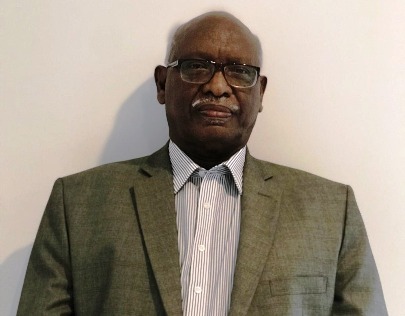Call for Nominating a President of the Republic

By: Zain Al-Abidin Saleh Abdel Rahman
On January 19, 2025, during a meeting with journalists, artists, and athletes in Omdurman, General Abdel Fattah Al-Burhan spoke about the U.S. sanctions imposed on him and Yasser Al-Atta’s youth project. He stated, “I didn’t bother to read the U.S. decision. I don’t own foreign bank accounts or real estate, and even my local account at Omdurman National Bank is solely for receiving my salary like any other officer in the armed forces.”
He added, “I find myself supporting a broad youth project currently taking shape, encouraged by Sovereignty Council member and my assistant, Yasser Al-Atta. It aims to bypass traditional parties and establish a post-war era. The Sudanese people are facing a conspiracy from political forces that are foreign agents.”
Al-Burhan’s reference to Al-Atta’s project is not incidental; it is a real initiative, not a new idea, but the recent military victories in Sennar, Khartoum, and the push to expel militias from Kordofan have given it momentum. Although Al-Atta introduced the project nearly a year ago, its relevance has grown with these developments.
On April 28, 2024, during a frontline visit in Omdurman, General Yasser Al-Atta stated, “The armed forces will move past political forces after victory and during the foundational phase.” He added, “We will establish a foundation period lasting several years without any political sponsorship.”
Al-Atta’s statement in April was a test balloon for political forces to gauge their reactions. At that time, the Central Forces of Freedom and Change were still betting on the militia-led coup’s success, especially since the army was in a defensive position. His statement did not attract much attention from political groups.
By August 23, 2024, Al-Atta adjusted his stance in an interview with Awatif Ahmed Abdullah on Sudan TV. He stated, “We have no desire to rule. We only want to hand over a secure and stable country to elected leaders. After defeating the militia, we envision a short transitional period focused on reconstruction and drafting a constitution that will be agreed upon, followed by elections to hand over power to elected officials. However, we will not hand the country over to foreign intelligence agents, who will forever be haunted by their betrayal.”
This statement differed from his position in April 2024, yet political forces still paid little attention.
On September 10, 2024, Al-Atta returned to his April stance, addressing soldiers in Al-Maaqil Military Zone in River Nile State. He stated, “The army’s Commander-in-Chief will remain head of state after the war ends and will not relinquish power during the transition. He will continue in office for at least three electoral cycles.”
Al-Burhan’s reference to Al-Atta’s project before media figures and artists underscores its significance, as he has reiterated it several times. The majority of Sudanese people hold a negative view of political parties, blaming them for mismanaging the revolution and enabling the military coup that led to war. The popular reception of army convoys and the chanting of “One Army, One People” have strengthened Al-Burhan’s endorsement of Al-Atta’s project—a broad youth movement as an alternative to traditional parties.
The Political Landscape and the Path Forward
Democracy is built on political parties, but Sudanese parties suffer from intellectual and organizational weakness. This was evident after the December Revolution when they presented some of the weakest leadership in Sudan’s history, lacking both experience and democratic culture. Their self-awareness of their limitations led them to focus on personal power rather than governance vision. Their political weakness became clear when they lost public support, which had previously served as their power base.
Now, the military leadership is betting on the youth who fought alongside the army, believing that the war has transformed their political consciousness. Their close military bonds could form the foundation for a strong nationalist movement.
Some leaders within political groups, particularly within the Unionist factions, advocate for a direct transition to constitutional legitimacy after the war. They propose a public referendum on the 2005 Constitution, which was initially drafted with broad political participation. After the referendum, a presidential election would be held. These figures would back the army chief as their candidate—once he resigns from the military—while allowing others to nominate alternative candidates.
Once constitutional legitimacy is restored, the elected president would call for a national constitutional conference within the first three months. Before the conference, elections would be held for neighborhood councils (with an age cap of 40 for candidates), labor unions, the Supreme Council for Native Administration, and the Supreme Council for Sufi Orders. Additionally, armed movements would transition into political parties and join existing parties in sending representatives to the conference.
The government, led by the elected president, would facilitate this dialogue, ensuring that the final constitution is put to a national referendum and becomes legally binding.
Governance Structure Under the Proposed Plan
- The President would form a government composed of competent, experienced, and transparent professionals.
- A legislative council would be elected by neighborhood committees across all regions, ensuring gender representation.
- General elections for political parties would be held after two electoral cycles.
- No individual would be allowed to serve more than two terms in any elected office, ensuring that parties practice democracy in action, not just in slogans.
The discussion on expanding this idea will continue in future articles. May God grant us wisdom and insight.



